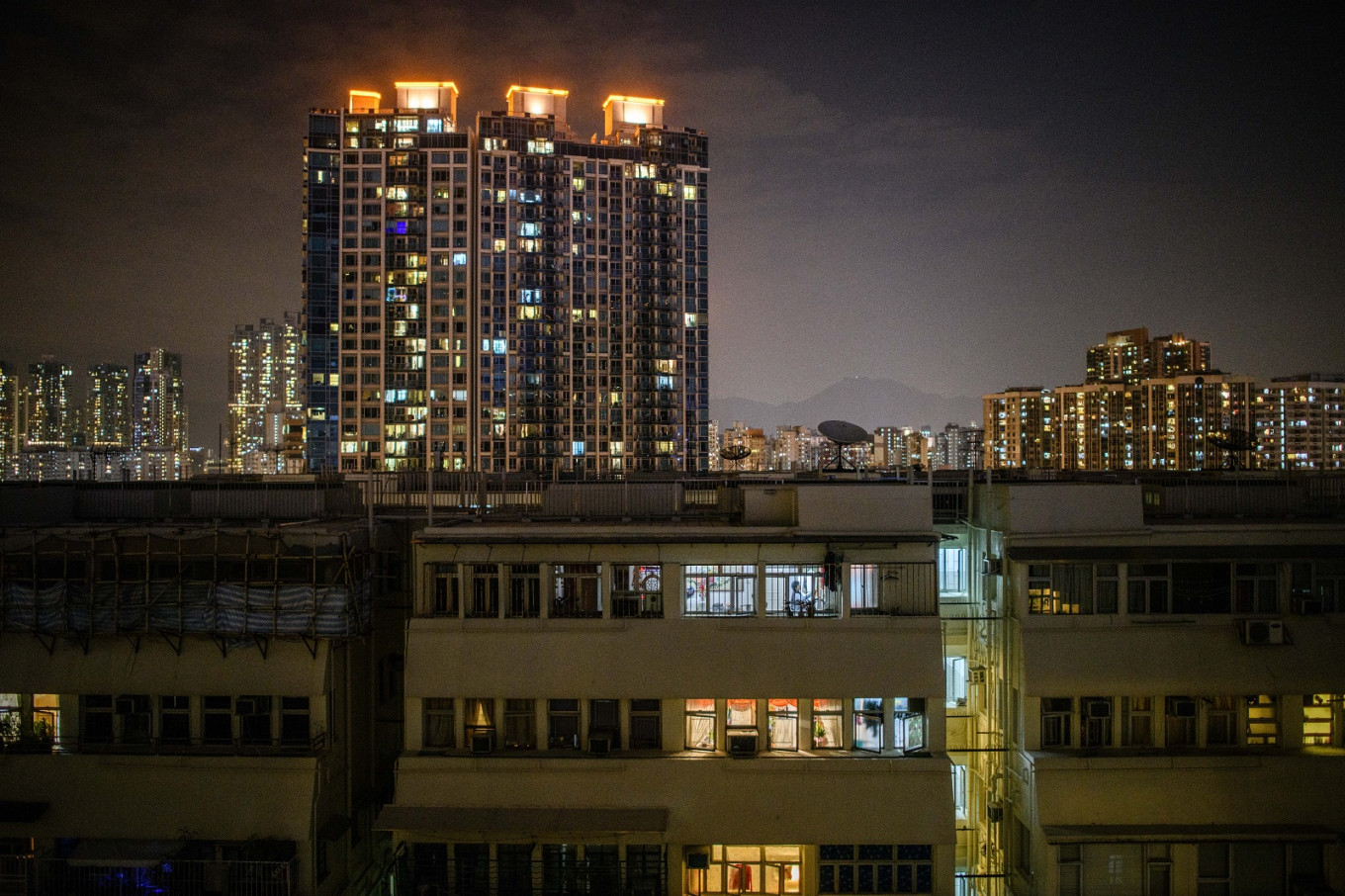Popular Reads
Top Results
Can't find what you're looking for?
View all search resultsPopular Reads
Top Results
Can't find what you're looking for?
View all search resultsHong Kong secretary to improve foreign labor rights
Hong Kong is looking to bolster protection for Indonesian migrant workers (TKIs) in anticipation of higher labor demands amid its aging population.
Change text size
Gift Premium Articles
to Anyone
T
o many Indonesians, particularly those from towns and villages in rural flatlands, the idea of living in a high-rise remains daunting. This is even more so for overseas Indonesian migrant workers in places like Hong Kong, where they work as domestic caregivers for the elderly and other domestic helpers in residences many stories above ground.
This cultural gap between rural migrant workers and their urbanized workplaces was one of the issues that Law Chi-kwong, Hong Kong's Secretary for Labor and Welfare, broached on Monday with the Indonesia's Manpower Ministry during his three-day visit from Jan. 20 to 23.
Lessons on urban life in Hong Kong, where people live in apartments up to 50 stories high in a city prone to storms, was an essential part of pre-departure training for Indonesian migrant workers (TKIs), Law said.
“We must tell them not to be afraid of living in high-rise buildings. In the case of storms, the buildings will sway but they are safe,” said the labor secretary, who expressed his amusement over the matter.
Today, Hong Kong has largely recovered from the widespread destruction caused by last year's Typhoon Mangkhut, the most intense storm ever to hit the city.
Making landfall on Sept. 16, Mangkhut had developed into a severe typhoon that left 400 people injured and an estimated US$1 billion in damages, according to Hong Kong media.
Situated on the northwestern edge of the South China Sea, the city of skyscrapers enters the peak of the annual tropical cyclone season between June and October.
Meanwhile, Indonesia remains largely rural, and the majority of its population prefer to live in landed houses, especially in underdeveloped regions.
Ahead of his press conference on Monday, Law met with Manpower Minister Hanif Dhakiri and officials from the Agency for the Placement and Protection of Indonesian Migrant Workers (BNP2TKI), as well as representatives from labor agent associations and labor training centers, to discuss relevant topics with a view to strengthening cooperation on protecting TKIs in Hong Kong.
Meeting with various stakeholders was important, Law said, as Hong Kong needed more foreign labor – including from Indonesia – to care for its aging population.
The Hong Kong administration projected that its elderly population (65 years and older) would grow from 1.16 million in 2016 to more than 2.37 million in 2036, roughly 31 percent of the total population.
"We estimate the number of domestic workers will grow to 600,000 in the next 30 years," said Law.
Some 380,000 migrant workers were presently employed as domestic helpers and caregivers in Hong Kong. Of that figure, about 165,000 workers – or 43 percent – were from Indonesia, he said.
Hong Kong is currently the third largest employer of TKIs in the Asia-Pacific, after Malaysia and Taiwan. Based on the BNP2TKI's 2016 data, TKIs in Hong Kong contributed $648 million in annual remittances to Indonesia.
In addition to the issue of pre-departure employment training, the Hong Kong administration was also looking to highlight cases of debt bondage that involved Indonesian migrant workers.
Over the years, TKIs have increasingly become targeted by debt bondage and alleged human trafficking schemes in places like Hong Kong, prompting Indonesian authorities to crack down on noncompliant employment agencies.
Although such incidents occurred in only 0.01 percent of all foreign labor contracts, Law stressed that the issue would not be neglected.
During his visit, Law also planned to meet Indonesia's request to raise the minimum wage for TKIs in Hong Kong.
Hanif expressed in a press statement his appreciation for the Hong Kong administration's decision to increase the TKIs' minimum wage, and for sanctioning agencies that had violated the Hong Kong Employment Ordinance.
"I also hope the Hong Kong government can set salary standards for TKIs who have worked [there] more than five years, so there is a difference between the salaries for new workers and experienced workers," he added.
In November 2018, Deputy Foreign Minister AM Fachir met with Law in Hong Kong to ask for the minimum wage increase.
Law noted on Monday that Hong Kong had already raised the minimum monthly wage for TKIs from HK$4,410 (US$562) to HK$4,520 in September last year.










